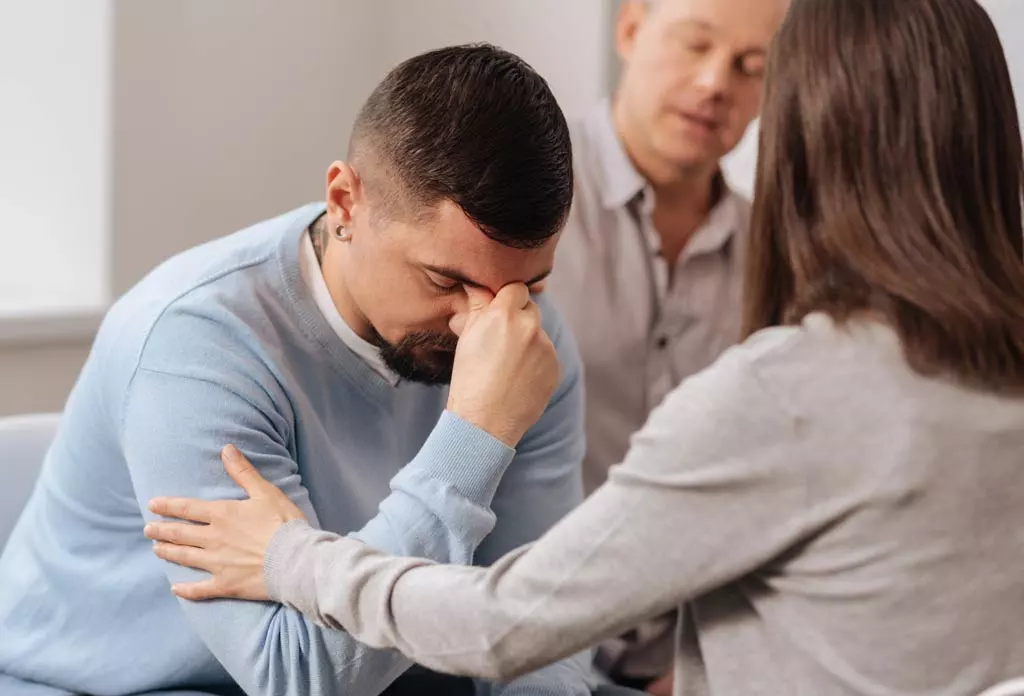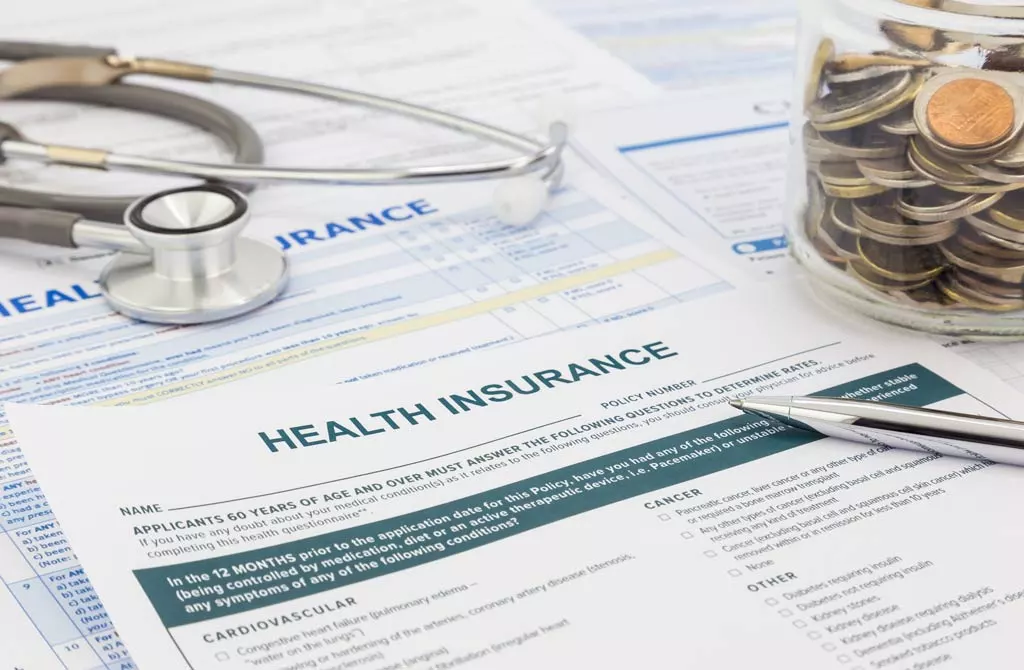
Mental Health Crisis
What is a mental health crisis?
Table of Contents
A mental health crisis is an acute period of psychological distress, often accompanied by a sense of fear or panic. Various traumatic events can trigger it or develop out of nowhere for no apparent reason. A mental health crisis is sometimes known as a mental breakdown or a nervous breakdown, and the symptoms it causes can range from mild to severe.
A crisis will usually leave its victim feeling hopeless, worthless, and without any sense of control over what is happening to them. They may think they are losing touch with reality and suffering from hallucinations—both visual and auditory—or delusions. They may believe they have lost their ability to think clearly or make decisions; some even report feeling like they don’t exist anymore.
Mental health crises don’t have to be serious to be scary; even minor episodes can impact one’s quality of life. Even though many people who experience a crisis eventually make a full recovery and go on to live happy and healthy lives, having an episode can still leave lasting impressions on their loved ones—family members may feel guilt and sadness about the circumstances that led up to the episode or about how they handled it afterward.
24 Hour Mental Health Hotline
What is the difference between a crisis vs a mental health emergency?
The terms crisis and mental health emergency are often used interchangeably; however, they represent two different things. What is the difference between a crisis vs. a mental health emergency? A crisis is an acute phase of a disease or disorder, during which symptoms are most severe. It may or may not require immediate intervention.
A mental health emergency, sometimes called a psychiatric crisis, is defined by a person’s psychiatric symptoms interfering with their ability to function normally. This may mean that the person has difficulty getting out of bed, communicating with others, taking care of their personal hygiene, or performing daily tasks.
Using emergency mental health services for immediate safety
Mental health emergencies often require hospitalization to ensure the patient is safe and has access to necessary treatment. A crisis may not necessitate hospitalization but could still warrant urgent attention from emergency services or other mental health professionals.
Crisis intervention services can be used as an alternative to hospitalization for those experiencing severe mental illness by dealing with the immediate crisis (i.e., suicidal thoughts).
Crisis intervention services are typically intended for use with patients who have not been deemed dangerous to themselves or others and will not necessarily lead to long-term care or other support systems; this is in contrast to the types of cases that would be considered a mental health emergency.
How can I tell if I am in a crisis with mental health?

Throughout a typical day, most people will go through at least one situation that seems stressful or upsetting. Mentally healthy people can usually handle these situations without lasting problems. For example, maybe someone cuts you off in traffic, and it makes you feel angry. Since this person’s actions were not deliberate, you probably won’t get too upset about it. After a few minutes of dwelling on the situation, you might forget about it.
Think of a mental health crisis as the opposite of this scenario. In a crisis, something significant is going on in your life that is making you feel very upset or distressed, or you are being triggered and affected by something that, though objectively not a big deal, is affecting you as if it were a highly significant upset.
You may be unable to control your emotions or behavior and have trouble thinking clearly about what’s happening with you. This situation may last for hours or days rather than minutes until it passes by itself.
Free Mental Health Assessment
What are the warning signs of a mental health crisis?
A mental health crisis can happen to anyone. But some signs can help you prevent or notice when someone may be in the middle of a crisis. A mental health crisis is when someone’s thinking, emotions, and behavior (or a combination of the three) are so out of balance that they can’t function normally. This is different from having a mental illness. The signs of a mental health crisis can be hard to pinpoint, and we need to be able to recognize them. Fortunately, there are some general things to look for that can help. First and foremost, we must keep an eye out for friends and loved ones.
Some of the more common warning signs to keep an eye out for that may indicate a loved one may be experiencing a mental health crisis are:
- Change in appetite/weight
- Sleep changes
- Changes in mood
- Loss of interest in hobbies/activities
- Frequent crying spells/mood swings
- Anxiety and agitation
- Social withdrawal
- Negative thinking
What causes a mental health crisis?
The causes of a mental health crisis can vary, but they generally fall under the following categories:
- A significant life stressor.
For many people, a major life stressor is an event that causes a significant change in their life. This could include losing a job, being told that your child has cancer, or being involved in an accident. These events are often complex and painful for everyone involved, but they can profoundly affect individuals who have not developed coping skills. A mental health crisis may result from experiencing such an event.
- An untreated mental health condition.
If you have an untreated mental health condition like depression or anxiety, you may experience symptoms that are similar to those of a mental health crisis (such as feelings of sadness and hopelessness). However, these symptoms do not always cause a mental health crisis. You may also experience physical symptoms such as stomachaches or headaches while having a mental health crisis.
- A substance use disorder or addiction.
Some people who experience mental health problems turn to drugs or alcohol to help them manage their situation better than they would if they were dealing with their symptoms directly. This can lead to substance abuse disorder or addiction, which invariably puts the person at a substantially higher risk of experiencing a mental health crisis.
How can I get help with critical mental healthcare?

Mental healthcare is a serious topic, and it’s one that many people avoid. For those who have mental illness and need help, it can be frustrating to know where to turn. It can be hard to navigate the system for critical mental healthcare, but there are ways to make it easier. If you or a loved one is experiencing a mental health crisis, you should first call your local crisis hotline. You can find this number on your state’s health department or social services website or simply by searching online. Hotlines are available 24 hours a day, 365 days a year, and can help connect you with a mental health professional in your area who can help assess your situation and begin treatment.
Finding Affordable Mental Health Treatment
If you are seeking long-term therapy or medication management, one thing to remember is that finding a provider who accepts insurance is key to reducing expenses and minimizing stress. Although it may seem like an added inconvenience at the time, calling insurance providers in advance can be invaluable in helping you find a provider that fits your needs and will take your insurance. There’s no shame in asking for help; if anything, it means taking control of your life and ensuring that your needs are met.
It’s also important to remember that many communities offer support groups for those living with mental illness—most hospitals and universities have these groups as well.
Immediate Placement for Mental Health Treatment
Ways to help a loved one with a mental health disorder in crisis.
The startling reality of a mental health disorder is that it’s impossible to predict when a patient will experience a crisis. When someone close to you suffers from a mental health disorder, their actions can often seem bizarre and alarming. If you’ve noticed them doing something out of the ordinary, it’s essential to know that your loved one might be in crisis.
It is best to not underestimate the severity of a mental health crisis or assume that it will pass on its own. It’s essential to take action by finding help for your loved one as soon as possible. Here are some things you can do in the immediacy of recognizing that they are in crisis:
- Be supportive. Your loved one needs you now more than ever. Part of what makes mental health issues so tricky for the person going through it can be the impression or feeling that they are isolated, alone, or unsupported. During a crisis phase, you must disabuse your loved one of these notions.
- Keep them safe. Lock up or remove any weapons or sharp objects that could be used to harm themselves or others. It seems self-explanatory, but many family members don’t allow their thought processes to meditate on the possibility that their loved one may take such extreme actions. The possibility does exist. Do not discount it. Mitigate all risks where possible.
- Stay with them at all times during the crisis. Never leave your loved ones alone if they seem suicidal or homicidal; they need constant supervision. This is a run-on point of sorts with the prior one. One of the best ways to support a family member experiencing a mental health crisis is by physically staying with them throughout the acute phase.
- Discuss the possibility of exploring professional treatment to address the underlying stressors and trauma that resulted in them being at risk for the crisis in the first place. This can be of comfort because it indicates that you are taking their struggle seriously and want to assist them with getting support and healing.
Does insurance cover behavioral and mental health treatment?
Whether your insurance covers behavioral and mental health treatment depends on what kind of coverage you have. The Affordable Care Act has made it a legal requirement for most insurance plans to cover mental health at the same level as other medical conditions, but there are still many exceptions.
In general, policies that provide unlimited coverage for in-network care will likely offer the best coverage for mental health care. Common examples of such plans include HMOs and PPOs, both of which allow patients to choose in-network providers. A significant advantage is that you can see any provider you want—you don’t have to worry about being referred to a specific practitioner.

Making Treatment for a Mental Health Crisis Affordable
The downside is that out-of-network services are not covered, so if you decide to go outside your network, you’ll pay out of pocket. If you’re seeking treatment for a specific condition for the first time, it might make sense to consult with an in-network provider first and then seek out a specialist later if necessary.
Many people are surprised that their health insurance plan does not cover behavioral or mental health treatment to the same degree as physical health. Unfortunately, even in 2022, some policies view mental health services as a “luxury” rather than an essential service. Inpatient programs for certain types of addiction recovery (marijuana, for instance) may not be covered, as an example. A general rule of thumb is that the treatment must be considered “medically necessary.”
The truth is that insurance is a highly convoluted, complicated system and framework to navigate, and countless factors must be considered. The best course of action for anyone needing to access mental health services via insurance is to reach out.
Contact Emerald Isle to get the specific details of your plan coverage, what your options are, and assistance with figuring out a pathway towards getting the treatment you need.
Finding safety and recovery at a holistic rehab for mental health issues.
When someone has a mental health issue, it’s not just an individual struggle—it affects their entire family and the people around them. This, however, is generally not addressed by traditional treatment models for mental health issues—most of which focus on medication and therapy. Holistic rehabs for mental health offer a different approach that aims to address the underlying issues that cause mental health problems to provide lasting recovery.
A holistic rehab facility is where someone with mental health issues can go to be healed in every sense of the word—centered on the idea of complete wellness, holistic means that this type of facility focuses not only on the aspect of mental health diagnosis but also on all aspects of a person’s life and how it relates to their overall well-being. To get a holistic view, facilities like these will assess each patient and determine what treatment is necessary for them to experience a complete recovery.
The Objectives of Holistic Treatment
The primary goal of a holistic rehab center is to facilitate recovery in each patient by teaching them how to manage symptoms and identify and cope with triggers that could lead to relapse. In addition, clients learn coping skills they can use in everyday life. Patients also participate in group activities designed to promote peer support and build self-esteem.
Group therapy allows patients to feel connected with other people who are going through similar struggles. An added benefit of these facilities is that sometimes it is easier for people to share their problems with strangers than with friends and family members.
24 Hour Addiction Treatment
Treat the Whole Person: Achieve Better Results
One of the most common misconceptions about holistic rehab facilities is that they only help people with substance abuse problems. Holistic rehab is an umbrella term for programs that treat the whole person, which means that their focus can be on treating mental health issues or psychological concerns. Many holistic rehab centers combine their treatment for substance abuse with one for other mental health issues, such as anxiety, depression, or bipolar disorder.
Facilities specializing in treating mental health issues use many different treatment methods, and a holistic approach means that they will employ all of them instead of only using one or two. This allows everyone who visits the facility access to all kinds of therapies available and helps ensure that patients get the best results from them. The most common forms of holistic treatment include art, music, yoga, meditation, gentle movement, and even animal-assisted therapy. These therapies work by allowing patients an opportunity to express themselves freely in a way that wouldn’t be possible in other situations.
As one of the leaders in holistic recovery, Emerald Isle Health & Recovery is here to help. Call today to get started on the road to recovery. Together, we can and will overcome anything!








